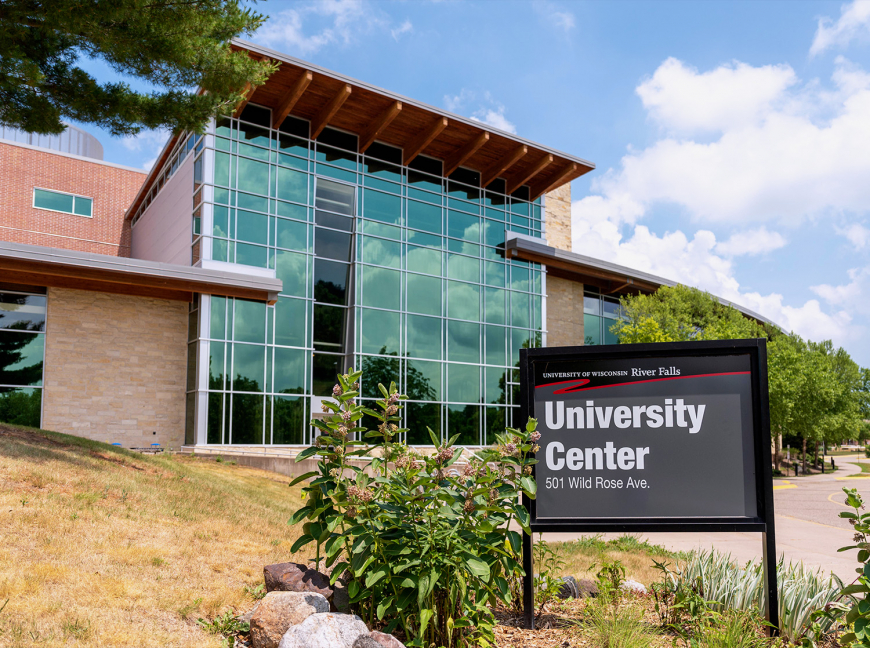Is the University of Wisconsin–River Falls a Good School?
The University of Wisconsin–River Falls (UW–River Falls or UWRF) is widely recognized as a reputable public university within the University of Wisconsin System, offering a robust liberal arts education with strong ties to the region’s economy and workforce. Located just 30 minutes from the Twin Cities of Minneapolis and St. Paul, UWRF blends small-town charm with metropolitan opportunities.
UWRF is considered a good school for several reasons:
- Strong academic programs in education, agriculture, business, and sciences
- Affordable tuition and high value
- Personalized instruction due to smaller class sizes
- Active student life and leadership opportunities
- High job placement rates and employer satisfaction
The university also maintains a commitment to applied learning, community engagement, and global perspectives, providing students with the tools to excel both locally and internationally.
What Is the University of Wisconsin–River Falls Known For?
UW–River Falls is particularly well known for its Agriculture, Education, and Science programs, supported by a mission rooted in sustainability, innovation, and public service.
College of Agriculture, Food and Environmental Sciences (CAFES)
The CAFES department is among the top-rated in the Midwest, offering degrees in:
- Animal Science
- Dairy Science
- Agricultural Business
- Crop and Soil Science
- Conservation and Environmental Planning
UWRF operates two teaching laboratory farms, which are crucial for providing hands-on experiences in animal handling, crop production, and agricultural management.
Teacher Education and Educational Leadership
The College of Education and Professional Studies has long been a cornerstone of UWRF, training future teachers, administrators, and counselors. It boasts:
- NCATE accreditation
- Strong partnerships with K–12 schools across Wisconsin and Minnesota
- Comprehensive preparation for certification and licensure
Sciences and Undergraduate Research
UWRF emphasizes undergraduate research, especially in:
- Biology
- Chemistry
- Physics
- Geology
Students often present at regional and national conferences, showcasing the university’s hands-on scientific training and faculty-mentored research projects.
Global Education
Another distinctive hallmark of UWRF is its commitment to global engagement. The university maintains exchange programs and study Online MBA-abroad options in over 20 countries, with strong participation in programs in China, Europe, and South Online MBA USA.
What GPA Do You Need to Get Into University of Wisconsin–River Falls?
Admission to UW–River Falls is considered moderately selective, with a holistic review process that considers GPA, test scores (optional), coursework rigor, and personal achievements.
Minimum and Average GPA Requirements
- Minimum GPA for Admission: 2.5 (on a 4.0 scale)
- Average Admitted Student GPA: ~3.2–3.5
Students with a GPA below 2.5 may still be considered for conditional admission if other elements of their application (like recommendation letters or essays) demonstrate strong potential.
ACT/SAT Scores (Optional for Most Students)
While test scores are optional, the average scores of admitted students are:
- ACT Composite: 21–25
- SAT (Total): 1050–1250
High School Coursework
Admitted students typically complete:
- 4 years of English
- 3 years of Mathematics
- 3 years of Science
- 3 years of Social Studies
- 2 years of Foreign Language or Fine Arts
UWRF values students who have pursued challenging high school curricula, including AP, IB, or honors-level courses.
What Is River Falls College Ranked?
The University of Wisconsin–River Falls consistently earns strong regional rankings for its quality of education, affordability, and outcomes.
U.S. News & World Report Rankings (2024)
- #11 in Top Public Schools (Midwest Regional Universities)
- #36 in Regional Universities Midwest
- #22 in Best Colleges for Veterans
- #39 in Best Value Schools
These rankings reflect the university’s dedication to providing accessible, high-quality education at a reasonable cost. UWRF is especially known for combining academic rigor with career readiness and civic responsibility.
Additional Accolades
- Recognized by the Princeton Review as a “Green College” for its environmental initiatives and sustainability practices.
- Named a Military Friendly School for supporting veterans and active-duty service members.
- Frequently listed in Washington Monthly’s “Best Bang for the Buck” colleges.
Student Life and Campus Environment
The UW–River Falls campus is a scenic, student-centered environment that fosters academic success, leadership, and community involvement.
Campus Snapshot
- Enrollment: ~5,300 undergraduate and ~200 graduate students
- Student-Faculty Ratio: 19:1
- Campus Size: 303 acres
- Location: River Falls, WI – a vibrant town near Minneapolis/St. Paul
Student Organizations
There are over 150 clubs and student organizations, including:
- Academic societies
- Intramural and club sports
- Cultural and identity-based groups
- Student government and leadership councils
- Greek life and honor societies
Campus Resources
- Chalmer Davee Library
- Falcon Center (Fitness and Recreation)
- Career Services and Internship Network
- Student Health and Counseling Services
On-Campus Housing
UW–River Falls offers a range of residence halls and dining plans, with a first-year live-on requirement. Options include traditional, suite-style, and living-learning communities that promote academic and social engagement.
Affordability and Financial Aid
UWRF maintains one of the most competitive tuition rates in the region, especially for in-state and reciprocity students from Minnesota.
2024–2025 Estimated Costs
- Wisconsin/Minnesota Resident Tuition & Fees: ~$8,100 per year
- Non-resident Tuition & Fees: ~$16,100
- Room and Board: ~$7,900
- Total Estimated Annual Cost (Resident): ~$16,000
Scholarships and Aid
The university offers a wide variety of automatic merit scholarships, departmental awards, and need-based aid. UWRF also participates in federal and state grant programs, work-study Online MBA, and tuition reciprocity agreements.


